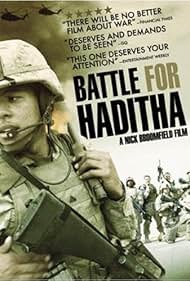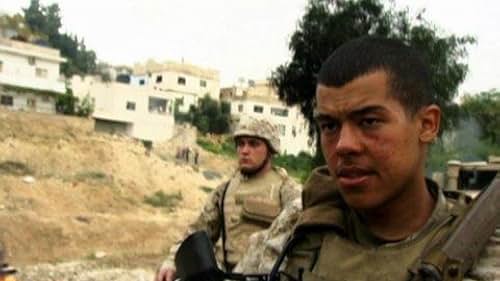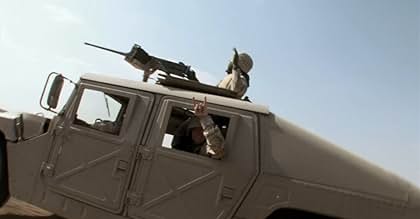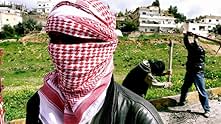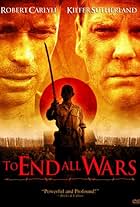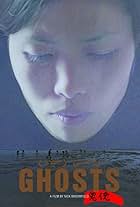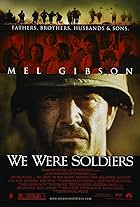An investigation of the massacre of 24 men, women and children in Haditha, Iraq allegedly shot by 4 U.S. Marines in retaliation for the death of a U.S. Marine killed by a roadside bomb. The ... Read allAn investigation of the massacre of 24 men, women and children in Haditha, Iraq allegedly shot by 4 U.S. Marines in retaliation for the death of a U.S. Marine killed by a roadside bomb. The movie follows the story of the Marines of Kilo Company, an Iraqi family, and the insurgent... Read allAn investigation of the massacre of 24 men, women and children in Haditha, Iraq allegedly shot by 4 U.S. Marines in retaliation for the death of a U.S. Marine killed by a roadside bomb. The movie follows the story of the Marines of Kilo Company, an Iraqi family, and the insurgents who plant the roadside bomb.
- Awards
- 2 wins
- Cpl. Matthews
- (as Matthew R. Knoll)
- Doc
- (as Thomas Hennessy Jr.)
- Iraqi Translator
- (as Ali Adil Aj-kaa)
- Ahmad
- (as Falah Flayeh)
- Director
- Writers
- All cast & crew
- Production, box office & more at IMDbPro
Storyline
Did you know
- TriviaThe film was shot in an unconventional way whereas instead of a detailed script, there was only an outline of each scene and where the story was going. Actors would then improvise much of the dialogue based on director Nick Broomfield's instructions.
- GoofsAll of the Iraqi Army soldiers in the film are seen wearing the "three-color" DCU uniform, although in the time period that the movie takes place in (late 2005), the Iraqi military wore the "chocolate-chip" DBDU uniform.
- ConnectionsReferences Breaking News (2004)
All this is very interesting, and the killings are similar to those in De Palma's flashy but so very slipshod 'Redacted,' but so very, very different in this new context with the simpler shoot--just a digital camera that you can forget about after a while, whereas De Palma rubs your nose in the multiple media feeds, the other American soldiers less specific here but cruder and perhaps more authentic; some of them like Ruiz were in the war themselves, and served, and know the way to act without being told.
But what is extraordinary in Broomfield's film isn't any of this so much as one thing that typically, American reviewers have hardly seemed to notice. This is: that not only are the Iraqis seen up close, they are real Iraqis, speaking Iraqi Arabic, and many of them, like the young actor who plays Ramirez, also on the other side as victims and non-combatants, veterans of the war, now living where the film was made and where they fled to, in Jordan. When Ramirez shows a big scar on his leg and says he almost lost it, it's Ruiz's real battle scar. Ruiz's performance has a new kind of conviction.
Why would Americans' notice that about the Iraqi Arabic, the authentic Iraqi non-actors playing the roles of insurgents and local inhabitants, and why would they care? In fact even the Choir to whom this anti-war movie is preaching are as ignorant and indifferent to the specifics of Middle Eastern cultural reality as the naive and headstrong men who got us into the war and the poor and uneducated boys who have pursued it and died in it and come back maimed and mentally damaged from it. But in the future, this may come to matter, and even be understood by American Iraq war veterans. Language is important, and culture is important. One shouldn't have to say that. But if it were understood, the imperial indifference of "bringing democracy to the Middle East" would crumble, and it wouldn't seem so easy to think that killing a hundred thousand civilians would make us friends.
Using real Iraqis and a lead Marine who's an Iraq war vet were master strokes, but this doesn't excuse the film from being in many ways self-damagingly roughshod and, despite the multiple viewpoints, still skewed at times. The Iraqi civilians who become victims are given a fairy tale simplicity, their complicity or involvement in weapons and explosives, though alluded to, not specified for any of the victims. There needed to be something more specific about a Marine other than Ramirez.
The chief bad guys, which seems right, are those at one remove, the Marine supervisors away from the front, and the local imam whose encouraging the locals to ignore the danger and hold a celebration is a cynical gesture to worsen the casualties and make them seem more cruel to the media.
Broomfield has used blunt instruments to shape his story, and his ending is a little muddled (partly from necessity, since the accused Marines hadn't yet been tried). Nonetheless the authenticity, particularly of the Iraqis, but of the whole scene, wins The Battle of Haditha a special place in the less-than-stellar roster of Iraq war films thus far delivered.
- Chris Knipp
- May 24, 2008
- Permalink
- How long is Battle for Haditha?Powered by Alexa
Details
Box office
- Gross US & Canada
- $10,310
- Opening weekend US & Canada
- $1,982
- May 11, 2008
- Gross worldwide
- $245,521
- Runtime1 hour 37 minutes
- Color
- Sound mix
- Aspect ratio
- 2.35 : 1
Contribute to this page

